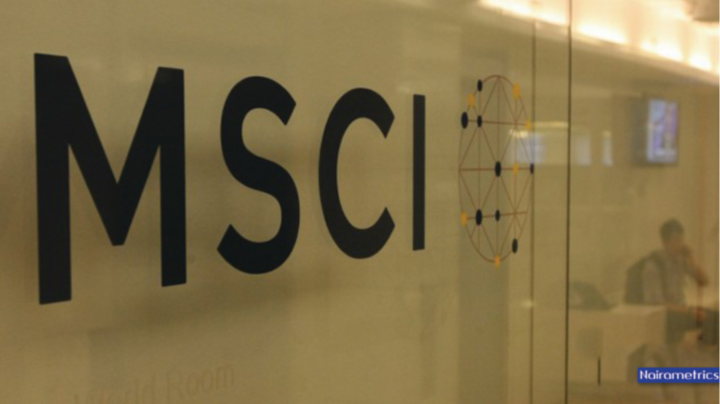In a significant development with potentially far-reaching implications for Nigeria’s economic landscape and investment climate, MSCI, a renowned provider of essential tools and services for the global investment community, has officially announced a significant reclassification of the MSCI Nigeria indexes.
This reclassification involves a shift from Frontier Markets to Standalone Markets for the country. This announcement follows closely on the heels of another pivotal move by FTSE Russell, a global index provider, which downgraded Nigeria from a Frontier Market to an Unclassified Market status in September 2023.
The core issue driving this significant reclassification is Nigeria’s ongoing struggle with foreign exchange (FX) liquidity. Both MSCI and FTSE Russell have cited these persistent FX liquidity challenges as major obstacles that foreign investors face when entering or exiting the Nigerian equities market.

This crucial decision by MSCI followed an exhaustive consultation period, spanning from June 2022 to September 2023, during which they meticulously assessed the country’s FX situation. The consultation aimed to provide the government with an opportunity to stabilize the FX market through recent policy reforms.
Despite the government’s earnest efforts, which included bold FX policy reforms, the FX liquidity problems have persisted, ultimately prompting MSCI’s decision to reclassify Nigeria. In their official statement, MSCI acknowledged the Nigerian government’s attempts to stabilize the FX market but highlighted that the challenges remain significant, impacting investor confidence and market accessibility.
As a direct consequence of this reclassification, MSCI will remove several major Nigerian securities from the MSCI Frontier Markets Indexes. Companies such as Dangote Cement (DANGCEM), MTN Nigeria (MTNN), Guaranty Trust Holding Company (GTCO), Zenith Bank (ZENITH), Seplat Petroleum (SEPLAT), Stanbic IBTC (STANBIC), Nestlé Nigeria (NESTLE), Nigerian Breweries (NB), and BUA Cement (BUACEMENT) will be valued at effectively zero as of the close of February 29, 2024. This move has the potential to lead to a significant outflow of foreign investment from these companies and, consequently, the broader Nigerian market.
The immediate impact on individual companies is a cause for concern, but the larger issue revolves around how this reclassification affects Nigeria’s standing in the global financial market. It serves as a crucial indicator of the country’s economic health and could deter foreign direct investment (FDI), particularly when considered alongside the recent downgrade by FTSE Russell. For Nigeria to regain its earlier classification and attract more global investors, resolving the persistent FX liquidity issue is of paramount importance.
The Nigerian government and its financial regulators must return to the drawing board and critically assess the effectiveness of recent FX liberalization policies. Addressing the root causes of these FX challenges, enhancing liquidity, and restoring investor confidence are crucial steps to secure Nigeria’s position as an attractive investment destination in the eyes of global investors.
Furthermore, the government should engage in proactive and coordinated efforts with the financial sector to ensure a robust and stable FX market, thereby instilling confidence in foreign investors. Implementing long-term strategies for FX market stability and comprehensive reforms is essential for Nigeria to regain its position as a Frontier Market and attract increased FDI, which can contribute to the country’s economic growth and development.
Support InfoStride News' Credible Journalism: Only credible journalism can guarantee a fair, accountable and transparent society, including democracy and government. It involves a lot of efforts and money. We need your support. Click here to Donate
